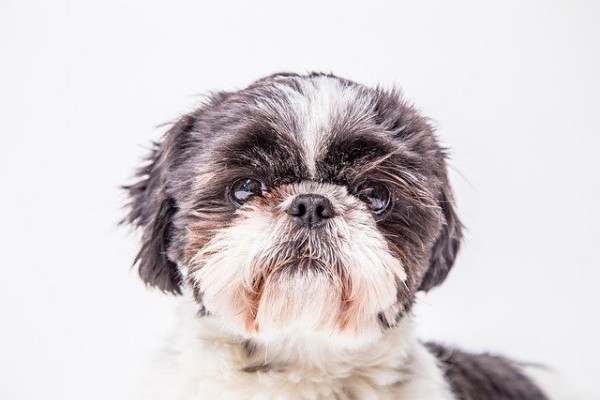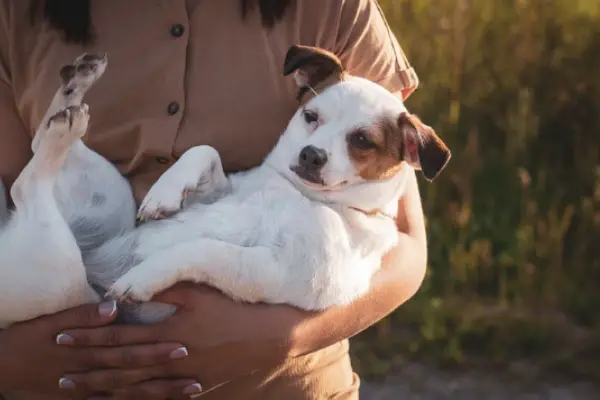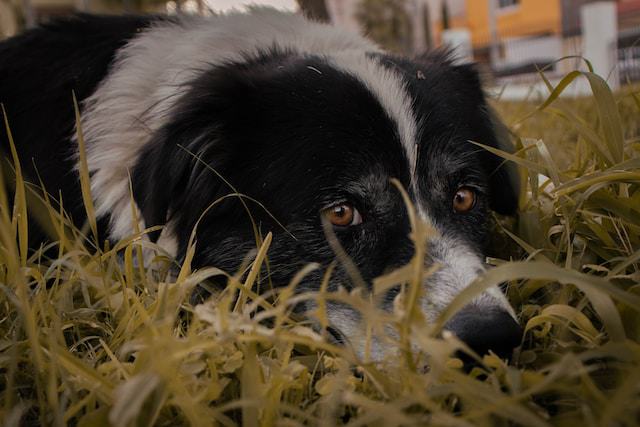Do Boston Terriers Shed [10 Shedding Hints]
![Do Boston Terriers Shed [10 Shedding Hints] Do Boston Terriers Shed](https://petcreeks.com/wp-content/uploads/2022/11/Do-Boston-Terriers-Shed.jpg)
Are you considering getting a Boston Terrier? One of the biggest concerns potential owners have is whether or not this adorable breed sheds.
In this post, we’ll explore the truth about Boston Terrier shedding and what you can expect if you decide to bring one of these spunky pups into your home.
So, let’s dive in and learn more about our furry friends!
Do Boston Terriers Shed
Yes, Boston Terriers do shed, but they shed significantly less than many other breeds.
They have a smooth, short coat made of thin and short fur, which means they don’t shed as much as breeds with a double coat.
You can expect to see light shedding year-round, and slightly heavier seasonal shedding may occur once or twice a year.
Causes of shedding in Boston terriers
Here are some common causes of shedding in Boston Terriers:
1. Seasonal Shedding
Like most dogs, Boston Terriers have seasonal shedding that is brought on by variations in temperature and light.
They frequently shed their heavier winter coat in the fall and spring to make way for lighter summer ones.
This is a typical occurrence that cannot be stopped but can be controlled by routine brushing and grooming.
2. Poor Diet
A Boston terrier’s dry, brittle coat that is more prone to shedding can result from a diet that is deficient in critical minerals.
A healthy coat requires nutrients including Omega-3 fatty acids, zinc, and biotin.
A Boston Terrier may shed excessively if their diet is deficient in these vitamins and minerals.
Giving your dog high-quality food that is balanced nutritionally and contains all of these necessary elements will help reduce excessive shedding brought on by malnutrition.
Learn more about the benefits of proper nutrition for dogs.
3. Allergies
Food, pollen, dust, or flea bites are just a few of the things that might cause allergies in Boston Terriers.
Itching, redness, and hair loss can all be symptoms of these allergies.
Skin tests or blood tests can be used to diagnose allergies, and medication and environmental control measures can be used to treat them.
To identify the allergen and prevent it in the future, your veterinarian may advise an exclusion diet.
4. Stress and anxiety
Boston Terriers can feel anxious, worried, stressed, and boredom just like humans do.
Due to this, Boston Terriers may lick, chew, or scratch themselves excessively, which can cause hair loss.
Infection and skin discomfort are other effects of this practice.
Giving your Boston Terrier plenty of mental and physical activity, as well as social interaction, can help lower stress and stop excessive shedding brought on by stress-related behaviors.
5. Hormonal Imbalance
Hair loss in Boston Terriers can be brought on by hormonal imbalances such as thyroid problems or Cushing’s disease.
Blood tests can be used to diagnose certain diseases, and medication or surgery can be used to treat them.
Depending on the underlying hormonal condition, your veterinarian will advise a suitable course of action.
6. Infections
Boston Terriers’ skin conditions, including ringworm, bacterial, or yeast infections, can result in hair loss.
These infections may result in skin peeling, redness, and irritation.
Skin scrapings or cultures can be used to diagnose infections, and medication can be used to treat them.
To treat the dog infection, veterinarians may occasionally give topical or oral medicine.
7. Parasites
Boston Terriers are susceptible to skin irritation and hair loss from parasites like fleas, ticks, or mites.
These parasites can lead to skin irritation and itching.
By using flea and tick prophylactic medicine and using medication to treat infestations, parasites can be avoided.
Infestations can be avoided by giving your dog regular brushing and looking for signs of parasites.
8. Genetics
Alopecia or hypotrichosis are two hereditary disorders that can cause excessive shedding in Boston Terriers.
These ailments cannot be avoided because they are inherited.
Surgery or prescription drugs may be used to treat these disorders.
It’s crucial to design a management strategy for any genetic disorders that might be causing excessive shedding in conjunction with your veterinarian.
9. Age Factor
Age-related changes in Boston Terriers include possible hair loss and thinning coats.
This cannot be stopped because it is a normal aspect of aging.
A good diet and routine grooming can help control the shedding that comes with getting older.
Learn more about Boston Terrier’s old age issues.
10. Side effects of Medications
As a side effect, several drugs can make your Boston terrier shed and lose hair.
If your Boston Terrier is taking medicine, and you observe excessive shedding, go to your veterinarian to find out if there are any alternatives and to see if the drug is the problem.
Learn more about the signs your Boston terrier is sick.
Signs a Boston terrier is shedding so much
Some signs that a Boston terrier might be shedding more than normal include finding more hair around your home or on your clothing than usual, seeing patches of thinning hair or bald spots on your dog’s coat, and noticing increased itching or licking of the skin.
Additionally, if you start sneezing or have other allergy symptoms when around your Boston terrier, this could be a sign that they are shedding more than normal, as shedding can release tiny bits of skin that cause allergy symptoms in those allergic.
It’s normal for dogs to shed, but if you’re concerned that your Boston terrier is shedding too much, you can talk to your veterinarian to rule out any
How to manage shedding in Boston Terriers
Here are some common ways to manage excessive shedding in Boston terriers:
- Brush your Boston Terrier regularly: Regular brushing can help control shedding by removing loose fur before it falls out on its own.
- Bathe your Boston Terrier: Bathing your Boston Terrier can also help to control excessive shedding. Use a gentle dog shampoo and conditioner to help keep their skin and coat healthy.
- Feed your Boston Terrier a high-quality diet: Feeding your Boston Terrier a high-quality diet can help to promote healthy skin and coat, which can help to reduce shedding.
- Give your Boston Terrier supplements: Supplements like omega-3 fatty acids can help to promote healthy skin and coat, which can help to reduce shedding.
- Use a de-shedding tool: A de-shedding tool can help to remove loose fur from your Boston Terrier’s coat, reducing the amount of fur that they shed.
- Keep your Boston Terrier hydrated: Ensuring that your Boston Terrier is properly hydrated can help to prevent dry skin, which can cause excessive shedding.
- Manage stress levels: Stress can cause excessive shedding in Boston Terriers. Try to reduce stress levels by providing a calm and comfortable environment for your dog.
- Keep up with regular veterinary care: Regular checkups can help to ensure that your Boston Terrier is healthy and doesn’t have any underlying medical conditions that could be causing excessive shedding.
- Keep your home clean: Cleaning your home regularly can help to remove loose fur that has already been shed, which can prevent it from accumulating on your floors and furniture.
Related questions
Do Boston Terriers shed a lot?
Not really, Boston Terriers are considered to be a low-shedding breed.
They have a short and fine coat that doesn’t require too much maintenance.
How often should I groom my Boston Terrier to help with shedding?
Regular grooming can help reduce shedding in Boston Terriers.
Brushing their coat once or twice a week with a slicker brush or a rubber grooming mitt can help remove loose hair and keep their coat shiny.
Are there any seasonal changes when Boston Terriers shed more?
Yes, Boston Terriers might shed more during the spring and fall seasons when they are transitioning between their winter and summer coats.
However, the shedding is usually not excessive.
What can I do to reduce Boston Terrier shedding at home?
Vacuuming your home regularly and using a lint roller on your furniture can help remove loose dog hair.
Also, keeping your Boston Terrier’s coat clean and healthy will reduce shedding.
Can diet affect the shedding of Boston Terriers?
Yes, a healthy and balanced diet can help reduce shedding in Boston Terriers.
Make sure to feed your dog high-quality dog food that contains all the necessary nutrients.
What if my Boston Terrier sheds excessively?
If your Boston Terrier is shedding excessively, it might be a sign of an underlying health issue or poor nutrition.
Consult your veterinarian to rule out any medical conditions and make sure you are feeding your dog a nutritious diet.
Learn more about reasons for excessive Boston terrier smelling.
Conclusion
In conclusion, Boston Terriers do shed, but not excessively, and they are a great choice for those who want a low-maintenance dog that is easy to groom.
With their affectionate and playful personalities, Boston Terriers make wonderful companions for families and individuals alike.
So, if you’re looking for a furry friend that won’t leave too much hair around the house, a Boston Terrier might just be the perfect fit for you!






